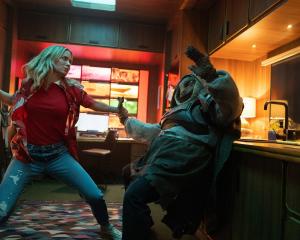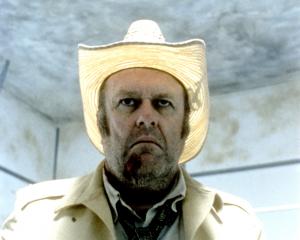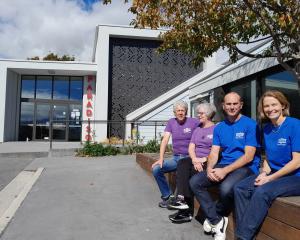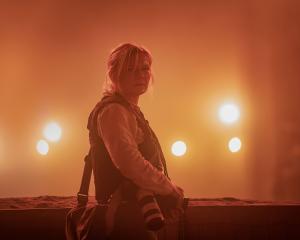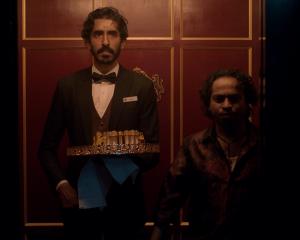
In a cinema cafe in London’s King’s Cross, Molly Manning Walker is showing me some pictures on her phone. They’re of a young woman, on holiday in Magaluf; a teenager with long brown hair and fake tan, laughing in her fake eyelashes and "out-out” clothes (belt skirt, stretchy top). Here she is on a bar crawl, falling off her mates; here, rotten hungover with a towel wrapped around her head. She looks as if she’s having the time of her life.
"I was,” says Walker. "I went on four of those holidays, when I was 16 to 18. You run away from your parents, you’re free. You can do whatever you want. The first time I went, there were 16 of us in four rooms on the same corridor. Sitting by the pool, talking absolute nonsense all day long, going out drinking all night, non-stop partying for a week. Non-stop."
Walker’s Magaluf trips gave her "some of the greatest memories of my life”. But she also remembers the difficult parts, mostly ignored back then. "Stuff happened, you know?” she says. "Bad stuff happened. And we didn’t even recognise it as bad. Because we were too busy bigging each other up. ‘You slept with someone! So good!’”
Now 30, with cropped hair and a more relaxed wardrobe, Walker has transformed all those teenage experiences — the good, the bad, the ugly — into her new must-see film, How to Have Sex, which follows three 16-year-old girls from London on a post-GCSE summer blowout in Malia, Crete. Tara (Mia McKenna-Bruce), Em (Enva Lewis) and Skye (Lara Peake) — screeching all the way, good vibes set to 11 — spend their time getting plastered, making one another laugh, bouncing from hotel room to pool to bar to club to beach to club to, sometimes, bed. They join forces with a group of three slightly older party-harders from Bradford and they all have "the best holiday ever!” At least, that’s what they keep telling one another. "You have to, don’t you?” says Walker. "That’s the deal.”
How to Have Sex won the Un Certain Regard award at Cannes this year, an overwhelming experience for the not-easily-overwhelmed Walker. It was the first time she’d seen anything she’d directed in front of an audience. Her first two short films came out during Covid and an unfinished script of How to Have Sex won her a place on the prestigious Cannes Next Step programme, where a tutor (director Marie Amachoukeli) helped her develop it into a full-length movie. Filming took place in Malia in November 2022. So when Walker saw her film on the big screen in the packed Debussy theatre with an in-the-know audience, it was ... a lot.
At the end, there was polite applause. Walker thought: "Oh, they like it, but they don’t love it, fair enough.” But when the lights came up, she was given an eight-minute standing ovation. "Bizarre,” she says. "Like going to 12 weddings in a row, when you’ve been living in a dark room, editing for six months.”
The awards ceremony was even weirder. She’d had to go to Italy for work and her flight back was delayed. As her name was read out as the winner, she was still in a taxi. Jury head John C Reilly filled in for time — he sang a song — and eventually Walker belted to the stage and picked up her award, panting, in a T-shirt and Adidas shorts. "I don’t think it sunk in that we’d won until much later,” she says. "I was just so stoked that I’d made it!”
Perhaps this all sounds like an easy ride — Walker herself has a tendency to downplay events: she’s open, but quite cool and unfazed — but directing How to Have Sex was a big step. Up until now, she’s been an in-demand cinematographer, working her way up through pop videos, fashion shorts, documentaries and features. She was the director of photography on Scrapper, made by her friend Charlotte Regan. And Walker loved wielding a camera. She hadn’t been sure about moving into directing, though several producers had asked. It was lockdown that gave her the time — and the financial motivation — to come up with the script for How to Have Sex.
When filming began, she had a few panicked moments, but decided to just enjoy herself and, in the end, loved the whole experience. And it was an experience: she uses the word "embedded” to describe it. She did workshops with the young actors to establish their relationships; spent two weeks in Malia in high season, going to clubs and listening in to mad-smashed conversations; and worked out a hugely detailed storyboard that she often shelved when a better idea came along.
Her cinematographer, Nicolas Canniccioni, came from documentaries, and the film feels so realistic I’d presumed it had been made among genuine club crowds.
"And everyone on the crew was young and party animals as well,” says Walker. "The thing that resonated with me in Malia was that there wasn’t any silence. You had to take yourself away from it, into a hole, in order to find any silence. There’s this constant beat.”
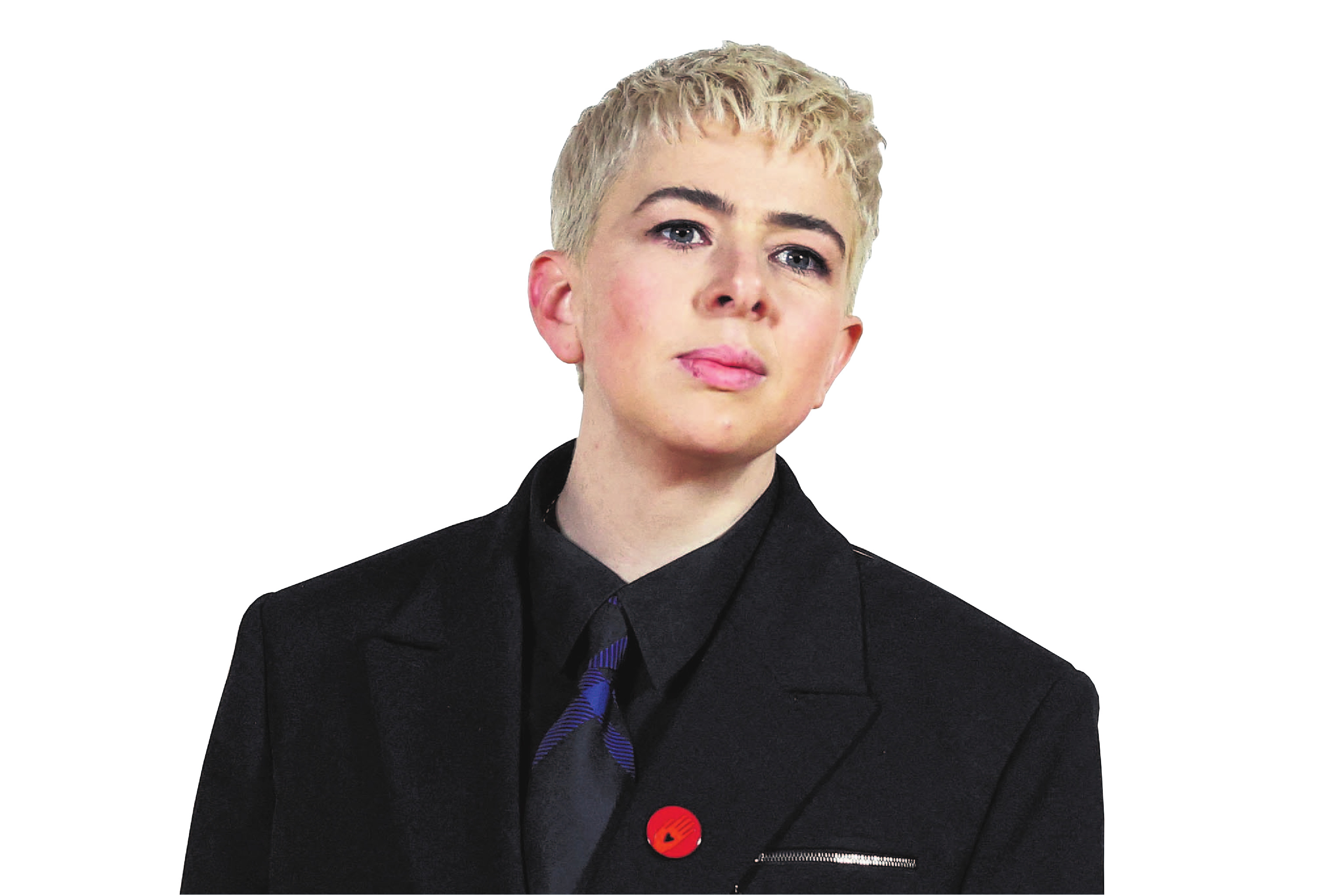
Because the thing is, although How to Have Sex is packed full of "best holiday ever” good times, there are also difficult situations. As the film progresses, events start to spin slightly out of whack and Tara, the bubbliest but least sexually experienced of the three, has a couple of hard-to-manage sexual encounters: uncomfortable, clumsy, not good for her, not right ... And the boys they meet end up in weird sexual circumstances, too. One, the daft but sensitive Badger , labels his (very public oral sex) as "the best moment of his life”, though he can’t remember it, and we know it isn’t.
"Yeah, how we’re taught and pressured into thinking that this is how you should have sex,” says Walker. "That’s the whole concept of the film. The blowjobs on stage, I saw that, in a club in Magaluf. I was standing on a pool table watching it ...”
Really, this is a film about consent. "For me, consent has become too black and white in terms of: ‘She said yes’, so it’s fine,” says Walker. "That doesn’t always work — it’s not enough. And afterwards, you don’t have the words. You’re young. So you’re like: ‘I said yes, but I know it was wrong’. But also: ‘I don’t want to be called a victim.’”
Complicated emotions are pushed down, because to voice them is too much. How can you talk about such situations when you’re 16 and the only language available would send you to the police? Walker knows about this. She was sexually assaulted in London when she was 16, her drink spiked while she was on a night out: "And I find that when I say that, all the oxygen is sucked out of the room.”
She adds: "No one knows how to deal with sexual assault. Especially if you’re young, because everyone just goes: ‘F...!’ and stops talking.” But Walker thinks we should talk. Not about the details, necessarily, but about how such situations come about.
Walker has a full-tilt approach to life. When she left uni, she cropped her hair to her skull: "A bit of a Britney moment.” She adds: "I was in a bad relationship. I was like: ‘F... this. If I shave my head, he won’t be attracted to me any more. And then I’ll have to dump him and start dating women.’ And it worked.”
Long hair gone now for almost a decade, she found almost immediately that her more masculine look led to an easier life. "Much easier,” she says. "I don’t get aggression on the street. I don’t get whistled at. If you go to a bar, you’re not going to get touched up. I looked like this when I was a kid, then went hypersexualised for 10 years and then went back ... It’s a response to the world, for sure. It opens up the world for me in a way that I feel safe.”
She’s hopeful that How to Have Sex will be seen by young people. In workshops carried out before filming, some reactions to the script from teenagers were revealing.
"They said things like: ‘He asked her, she says yes — she’s up for it’,” says Walker. "And: ‘It’s not an assault, because she’s already slept with him — he can do what he wants.’ So now we’re talking about taking it into schools with sex ed. Just making it less of a legal conversation and more of a human conversation.”
Such conversations are not easy, even among adults. In audience Q&As after the film, there have been difficult moments. Women have talked about their own sexual assaults. One man said: "This film has taught me not to let my daughters go out dressed in short skirts.”
So what would Walker want teenagers to take from How to Have Sex? "That sex should be two people having a moment and enjoying it together,” she says. "Discussions about consent can turn into ‘He said, she said’ ... Let’s make it about human interaction. And let’s make it a rule that sex should be: ‘Oh, we’re both having a great time.’ Great.” — The Observer

